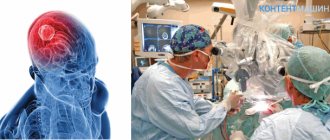When talking about the phenomenon of amnesia, it is often called a disease. If we consider this phenomenon more broadly, we can come to the conclusion: in fact, amnesia is only a symptom of another existing disease - neurological or psychiatric.
Amnesia is the general or partial inability of a person to remember events, both long ago and recently. This phenomenon occurs as a result of a disruption in the process of memorizing, reproducing and storing information.
The disorder is diagnosed in both older and younger people. In the first case, it can be explained by natural degenerative processes in the brain, which are age-related. In the second case, the causes of amnesia can be severe head injuries, alcohol abuse, intoxication and some other factors.
In humans, amnesia can manifest itself in several forms, depending on which the predominance of certain symptoms is observed.
People suffering from memory disorders usually experience severe headaches, are unable to navigate space and time, and cannot remember important data and significant events in their lives.
The clinical picture of this condition is also characterized by anxiety and depression. Amnesia may have a progressive course, but the possibility of its spontaneous occurrence cannot be excluded.
Why does it take away memory?
The roots of amnesia lie in processes associated with pathological changes in brain structures.
Memory impairment in older people, as mentioned earlier, is observed as a result of the natural aging of the body and the slowdown in the functioning of all its organs and systems. In some cases, amnesia in old age occurs due to Alzheimer's disease. This disease is characterized by the death of individual neurons, which leads to the development of dementia.
At an earlier age, the development of amnesia can be caused either by mechanical damage to structures and areas of the brain, or by psychological disorders.
Memory loss is caused by:
- Parkinson's disease;
- Alzheimer's disease;
- brain tumor;
- concussion;
- mechanical damage to the brain and its structures;
- cerebrovascular disorders;
- cerebrovascular accident;
- epilepsy;
- dyslexia (impaired reading ability, in most cases caused by genetic disorders or damage to brain structures);
- depressive states;
- taking certain medications or drugs;
- alcohol abuse;
- previous stroke;
- HIV;
- meningitis;
- intoxication of the body;
- lack of nutrients as a result of an unbalanced diet;
- suffered mental trauma, emotional shock.
All the described factors lead to disruption of the anatomical structures that are responsible for the functioning of memory, namely, memorization, perception, and recording of received information. Against this background, amnesia develops.
Step-by-step diagnostic algorithm
If the patient notices loss of short-term memory, he should consult a neurologist . The doctor will collect anamnestic data, a neurological examination and various pathophysiological studies.
Quite often, the patient requires the help of other specialists - a psychologist, psychiatrist, psychotherapist, oncologist.
During the conversation, the neurologist must establish exactly when the loss of memories occurred and what preceded it. Various medical research methods help to diagnose antegrade amnesia:
- CT and MRI of the brain. Studies can detect pathological foci and exclude diseases with similar symptoms.
- EEG. Allows you to evaluate the pulsed electromagnetic activity of the brain.
- Biochemical study of blood and cerebrospinal fluid. Diagnostics allows us to identify inflammatory processes or various hemorrhages in the brain.
- Toxic analysis. It is necessary to detect high doses of drugs or substances that cause poisoning of the body.
The specialist performs a special memory function test . This will allow you to get a complete picture of the patient’s condition.
Classification - unconsciousness comes in different forms
The types of amnesia can be classified according to several criteria, depending on the rate of its development, the following types are distinguished:
- Regressive . Characterized by the gradual recovery of forgotten memories. This type occurs in people who have suffered from traumatic brain injuries, concussions, or have recently recovered from anesthesia.
- Stationary . In this case, individual events are deleted from memory. This process is persistent, without change, that is, a person forgets certain events from his life and does not remember them again. The causes of this type of disorder can be senile dementia, psychological trauma, and head trauma.
- Progressive . Memories are removed from memory gradually, starting from recent ones and ending with long-past events. This type of amnesia is characterized by clearer preservation of childhood and youth memories, as well as professional skills and abilities. This kind of memory impairment is caused by brain tumors and mental illnesses.
Amnesia is also classified depending on the moment at which individual memories were lost:
- Retrograde . This is a pathological condition in which a person’s memory “falls out” of events that occurred before the development of the disease or injury that provoked amnesia. At the same time, facts and events that occurred in the distant past are preserved, especially if they have great emotional significance for the victim. Retrograde amnesia develops due to cerebral circulation disorders, traumatic brain injuries, stressful situations, and deep emotional upheavals.
- Anterograde . This condition is characterized by the loss of events that occurred after the disease causing amnesia developed or after receiving a severe head injury. This type of memory impairment occurs in old age, after traumatic brain injury and infectious diseases, and in the presence of mental disorders.
- Anteroretrograde . As the name indicates, this type of amnesia combines the features of the first and second types described above and occurs after particularly severe head injuries. As a rule, certain events preceding the turning point and some events following it are forgotten.
- Retarded, or delayed . In this case, memory impairments do not appear immediately, but only some time after the turning point. May occur against the background of acute psycho-emotional shocks.
Separately, it is necessary to mention such types of memory impairment as transient global and alcoholic amnesia.
Transient disorder
Transient global amnesia is a temporary phenomenon in which a person suddenly loses memory and spatial references.
At the same time, he is able to remember his own name and the names of loved ones, add numbers, and keep count. The duration of this state ranges from several hours to several days.
After a certain period, the person regains all his abilities. This happens spontaneously.
Transient amnesia is quite rare: according to statistics, the incidence rate is 3 per 100,000 people per year. It is observed in elderly people.
The reasons for this phenomenon have not been fully studied, but it is assumed that they include:
- violation of transient cerebral circulation;
- epilepsy;
- disturbances in the functioning of the vascular system of the brain;
- suffered stress;
- migraine.
No specific treatment is required for transient global amnesia; all symptoms go away on their own.
Alcohol affects memory
Alcohol amnesia is a memory impairment that is associated with alcohol abuse. In this case, we are talking about a person’s inability to remember events that occurred after intoxication and to be aware of the actions performed in such a state. This occurs due to disruption of nerve impulses caused by alcohol consumption.
With severe alcoholism, it is not just individual episodes that can be erased from memory, but entire fragments of ongoing events. Subsequently, constant heavy drinking can lead to alcoholic dementia, which is characterized by total memory loss with preservation of memory processes.
To prevent this from happening, you need to treat the root cause – alcohol addiction. During treatment, it is necessary to prescribe medications that help restore brain function, as well as drugs to improve blood circulation and nutrition of the brain.
If treatment is not started on time, there is no guarantee that the memory will return to the alcohol-dependent patient in full.
Treatment
The structure and function of human memory have not yet been fully studied, and research in this area is being actively conducted throughout the world. Modern data show that in humans, as in some animals, not only the brain, but the entire nervous system is involved in the process of memorization.
Treatment of memory loss must be carried out carefully and step by step, especially to prevent the replacement of real memories with false ones. Treatment for amnesia begins with neutralizing the underlying illness or traumatic event, as well as the factors that contributed to memory loss.
A wide range of antioxidants and neuroprotectors are actively used for drug therapy, for example, cerebrolysin, memantine, cortexin, cytoflavin, Semax, citicoline, ginkgo biloba extract, glycine and vitamins. A variety of techniques and techniques of neuropsychological rehabilitation are very effective in promoting recovery.
Amnesia, the treatment of which is complicated by the psychogenic nature of the disease or for the treatment of non-progressive forms, neuropsychological therapy is effective. If the effect of the underlying disease and other provocateurs of amnesia is eliminated, drug therapy is aimed at enhancing cholinergic transmission in the brain. For this purpose, drugs such as piracetam, gliatilin, pyritinol or encephabol, Cerebrolysin and Semax are prescribed.
Clinical picture
Some of the symptoms of amnesia have already been mentioned when describing the condition of the patients. Its manifestations primarily depend on the type of disorder. An amnesiac suffers from the following problems:
- loss of memory for events that have occurred over the past few years;
- complete disorientation in time and space;
- confusion (typical for people who, due to an unbalanced diet, have a deficiency of vitamins in the body);
- visual impairment (with Wernicke encephalopathy);
- drowsiness;
- delirium and emotional agitation (with severe forms of amnesia);
- difficulty remembering information about a stream of events that happened recently;
- confabulations, or false memories - in this case, a certain period is erased from a person’s memory, which he tries to fill with events that did not actually occur.
Features of the pathology
Anterograde or antegrade amnesia is a failure of memory function in the brain, which develops as a result of changes in the structure of certain parts of the organ.
As a result, the patient is not able to clearly remember the events that took place in his life after exposure to a destructive factor on the central nervous system.
The data is completely erased from his memories or loses its logical sequence and becomes chaotic. This occurs due to a disruption in the process of transferring information from short-term memory to long-term memory. At the same time, what is associated with the patient’s life before brain damage is preserved intact.
Usually the patient can recover lost memory, but not completely. A favorable moment is considered to be the preservation of the victim’s ability to learn new skills. Memory functions are not completely disabled, but they no longer work at full capacity. The causes of the pathology are difficult to identify, it is difficult to correct, which is why it often causes mental health problems. Anterograde amnesia is relatively rare. The resulting temporary gaps can significantly reduce the functionality of the brain.
A separate form of pathology is temporary anterograde amnesia. It is provoked by taking medications, most often sleeping pills or sedatives. The clinical picture in this case lasts from a couple of days to six months.
The disease can be temporary; this type of disease is provoked by medications.
Methods for diagnosing amnesia
To diagnose memory impairment, as well as determine the type of amnesia, the following methods are used:
- Collecting the patient’s medical history regarding how long ago and for what period the memory disappeared, what preceded it, whether this happened before.
- Neurological examination , during which a specialist determines the presence of abnormalities that could cause amnesia.
- Examination of the patient by a psychiatrist to look for emotional and intellectual disorders.
- Computed and magnetic resonance imaging . These procedures are necessary for a comprehensive study of the structure of the brain. They make it possible to identify structural changes in it, the presence of a tumor, thinning of the cortex, circulatory disorders, which became the cause of amnesia.
- Electroencephalography . Using this method, the activity of individual areas of the brain is assessed, which can change in the presence of abnormalities and diseases.
The procedures described in the last two paragraphs are classified as differential diagnostic methods, that is, those that allow us to establish the cause of the development of amnesia. To their number you must also add a blood test, toxicological and biochemical tests.
What is anterograde amnesia?
Antegrade amnesia is a violation of memorization and storage of received information, in which the patient forgets events that occurred after an illness or traumatic brain injury.
Disturbance in the movement of information from cells of short-term storage to sections of long-term storage causes amnesia of an anterograde nature. Due to the problem of establishing new interneuron connections, memorization is blocked. Previously acquired knowledge is retained. The victim remembers everything that preceded the painful condition, but new connections between nerve cells are not formed.
The result of the condition is the patient’s confusion due to the inability to adequately interact with others and correctly respond to current events.
Memory recovery
Treatment of amnesia must be comprehensive and contribute to achieving the following goals:
- eliminating the causes of memory impairment;
- ridding the patient of internal conflicts;
- overcoming psychological trauma;
- the patient achieves sufficient relaxation;
- replenishing the deficiency of vitamins and nutrients in the body;
- improvement of the patient’s neuropsychological condition;
- restoration of brain functions.
The treatment itself includes the following methods:
- taking medications that improve memory, concentration, and promote brain nutrition, including Nootropil, Memantine, Undevit;
- taking vitamin-mineral complexes to provide the body with all the necessary microelements;
- treatment of the underlying disease that provoked memory impairment (for traumatic brain injuries, tumors, mental disorders);
- conducting psychotherapy sessions.
In addition, a prerequisite for successful treatment is adherence to the rules of a healthy lifestyle.
Treatment: what is its specificity?
Pathology requires hospital treatment of the patient . The doctor will be able to monitor the patient’s condition, make a diagnosis and prescribe appropriate therapy. Depending on the severity of the disease, treatment can take from several weeks to months.
The goal of therapy is to eliminate the disease that led to memory loss and restore forgotten events and information.
The doctor prescribes the following groups of medications:
- Nootropic drugs. They normalize cerebral microcirculation, bioelectrical activity and integrative activity of the brain, improve information exchange.
- Neuroprotectors. Protect neurons from various types of influences and damage.
- Psychotropic drugs. They have anxiolytic, sedative, hypnotic, muscle relaxant and anticonvulsant properties.
- Vasoactive drugs. They improve blood supply to the brain tissue.
- Antidepressants. Used to treat depression.
The doctor sometimes recommends neuropsychological correction and physiotherapeutic treatment to the patient (acupuncture, color therapy, low-intensity electrical stimulation).
Prevention of memory disorders
To avoid problems such as amnesia, you must:
- see a doctor and undergo regular preventive examinations;
- control blood pressure;
- immediately seek help from a specialist if your health status changes;
- spend more time in the fresh air;
- maintain a proper sleep schedule (sleep at least 8 hours);
- eat right, often, in small portions;
- if possible, stop taking medications that impair memory;
- train your memory: remember what you read, remember in detail what you saw, learn poems.
Amnesia has many varieties, and each of them is an alarming symptom that indicates the presence of a serious illness. Do not neglect it: the slightest delay can lead to irreversible consequences.
Risk factors
Most often, anterograde amnesia affects elderly people, patients with neurological disorders due to TBI, mental disorders, and infectious lesions of the central nervous system. Doctors identify several dozen more risk factors. Some of them do not even have a pathological origin.
The most common causes of anterograde amnesia:
- taking benzodiazepines inconsistently with a doctor or violating the treatment regimen. Other sedative or hypnotic medications may also pose a danger;
- complications arising from local or general infectious diseases;
- old age, against the background of which irreversible structural changes occur in the brain. Anterograde amnesia is one of the symptoms of Alzheimer's disease;
- mental disorders of organic origin, for example, mental retardation;
- lesions of the central nervous system leading to loss of consciousness - epilepsy, coma;
- traumatic brain injuries of any severity;
- psychosomatic disorders, negative psycho-emotional factors in the form of stress, depression, mental exhaustion;
- acute or chronic cerebrovascular accident;
- intoxication due to poisoning with alcohol, drugs, chemicals;
- neuroendocrine diseases.
Epilepsy can be a cause of pathology.
Even factors that seem insignificant at first glance, such as poor nutrition and strict diets, influenza and ARVI, pose a danger to the functioning of memory. Anteroretrograde amnesia can also be a consequence of such stimuli. This condition includes two forms of memory loss at once and is characterized by the loss of memories for the period both after the onset of the traumatic moment and before it.
Which doctor should I contact if I have amnesia?
If you have amnesia caused by a traumatic brain injury, you must call an ambulance. A consultation with a neurologist is required, and in special cases, a consultation with a psychotherapist. Treatment for amnesia does not need to be delayed.
Or help with a popular cryptocurrency (spoiler reveal):
BTC Address: 1Pi3a4c6sJPbfF2sSYR2noy61DMBkncSTQ ETH Address: 0x7d046a6eaa1bd712f7a6937b042e9eee4998f634 LTC Address: LUyT9HtGjtDyLDyEbLJZ8WZWGYUr537qbZ Yandex Money : 410013576807538 WebMoney (R is still working): R140551758553 and Z216149053852 ATOM Address (Cosmos): cosmos15v50ymp6n5dn73erkqtmq0u8adpl8d3ujv2e74 MEMO: 106442821 BAT Address: 0x7d0 46a6eaa1bd712f7a6937b042e9eee4998f634 BCH Address: 1Pi3a4c6sJPbfF2sSYR2noy61DMBkncSTQ BEAM Address: 24ec693cffe396c864e23971a40c7d0dffb1269395a9cbfef23b2 164245e06fb5e2 BNB Address : bnb136ns6lfw4zs5hg4n85vdthaad7hq5m4gtkgf23 MEMO: 106210477 BTT Address: TNcTQmrUFkfbVDJDuFjh5beeikJBX39ySm DASH Address: Xkey1QYD5r9kkh23iBDNW8z9pnTF9tmBuL DCR Address: DsnSzfzbe6WqNb581muMAMN7hPnzz8mZcdr DOGE Address: DENN2ncxBc6CcgY8SbcHGpAF87siBVq4tU ETC Address: 0x7d046a6eaa1bd712f7a6937b042e9eee4998f634 LINK Address: 0x7d04 6a6eaa1bd712f7a6937b042e9eee4998f634 MANA Address: 0x7d046a6eaa1bd712f7a6937b042e9eee4998f634 NANO Address: nano_17nn85ygnimr1djkx8nh7p8xw36ia69xoiqckb8quo57 ebweut1w8gu6gamm NEO Address: AS1XCr1MS1BA69DTxDkZW8yYpB9njPTWzG OMG Address: 0x7d046a6eaa1bd712f7a6937b042e9eee4998f634 ONT Address: AS1XCr1MS1BA69DTxDkZW8yYpB9njPTWzG P IVX Address: DBH7DfLaSxtdT4Gzno4gLMC3f5gcD6BGVe QTUM Address: QP9LDRoEXDfAzMZroS9nnB7gyTyRYjaUgu RVN Address: RKFTtbQ4jWEY9gwHodiH92utCc8iBzStaM STEEM Address: deepcrypto8 MEMO: 106757068 TOMO Address: 0x7d046a6eaa1bd712f7a6937b042e9eee4998f634 TRX Address: TNcTQmrUFkfbVDJDuFjh5beeikJBX39ySm TUSD Address: 0x7d046a6eaa1bd712f7a6937b042e9eee4998f 634 USDT (ERC-20) Address: 0x7d046a6eaa1bd712f7a6937b042e9eee4998f634 VET Address: 0x7d046a6eaa1bd712f7a6937b042e9eee4998f634 WAVES Address: 3PHUH2hAzhbRqnrJ8 tr9GFgnkkxLL15Rhpw XEM Address: NC64UFOWRO6AVMWFV2BFX2NT6W2GURK2EOX6FFMZ MEMO: 101237663XMR: 83QPpH5bSKXDudRyPtNuMJFxcpXJ7EKMQNerFJsmYBRic1cq5t6doSF5okYmsEM9YTUDheqEsLeyh94GzUTsxkKM 35fRAyj XRP Address: rEb8TK3gBgk5auZkwc6sHnwrGVJH8DuaLh XRP Deposit Tag: 105314946 XTZ Address: tz1Q5YqkEZSwqU97HrC8FipJhSXcEyB3YGCt XVG Address: DDGcaATb3BWNnuCXbTZMf6fx 9Cqf2v1PWF ZEC Address: t1RBHUCbSWcDxzqeMCSPYdocKJuNGZvVJHn
Forecast
Whether the pathology can be treated depends on many circumstances. There are three possible outcomes. The first is that a person fully or partially remembers what happened during the “lost” period. This is often detected with concussions. May be present in affective shock disorders. At the same time, sometimes the psyche “prefers” to forget forever what a person is not able to emotionally endure, so gaps in memory after psychological trauma can remain forever.
Second , the violations progress. This is possible in severe somatic pathologies, intracerebral tumors, and progressive mental disorders. Third , the symptoms remain stable. This outcome is often observed after severe and moderate TBI, drug and alcohol intoxication.
Possible causes of amnesia, memory loss
Memory loss – causes of amnesia, symptoms.
Dissociative fugue - when a patient goes somewhere and completely forgets his biography for months and hours, rarely even longer, and suddenly he can remember everything and so quickly forget the events that happened when the fugue occurred - this is psychogenic amnesia.
Dissociated amnesia is the loss of facts from personal life, recent important events, while all other events and skills are preserved. Most often it occurs during the loss of loved ones, tragic events and mental trauma. There is no overwork, intoxication and organic brain damage. Memory disappears only while awake; with the help of hypnosis, the patient can restore all events from memory.
Post-hypnotic amnesia - it is impossible to remember what was done during hypnosis.
Amnesia may be a single manifestation of the disease, or it may be combined with aphasia, apraxia, or agnosia. The patient can replace his past memories with false confabulations, or distort events that happened to him - this is called paramnesia.
Diseases that can provoke amnesia are: emotional shock, epilepsy, mental illness, tumors, degenerative brain diseases, metabolic encephalopathy, intoxication, herpetic encephalitis, traumatic brain injury, and stroke.
Anatomical structures that ensure the functioning of memory are the frontal lobes, temporal lobes, hypothalamus, mediodorsal nucleus of the thalamus and mammillary bodies. The mediabasal system ensures the speed of recording new information, recognition, perception, learning, and memorization. The cerebral cortex is a large repository of long-term memory. The cerebellum, amygdala, and cortex supply procedural memory. Memory is modulated by dopaminergic, serotonergic, noradrenergic, and cholinergic systems of the brain. The storage and acquisition of new data is supplied by post-tetanic potentials, especially in NMDA glutamate neurons and hippocampal receptors. Damage to these structures can cause memory loss (amnesia).
Classification by dynamics
Judging by how long it lasts and at what point the period of forgetting occurs, there are:
- Progressive amnesia. Events and memories disappear gradually and sequentially, one after another. The most recent ones are erased first, then the older ones.
The carrier of the disease cannot accurately remember what he did yesterday, last year or in childhood. The chronological map becomes confused, and the person suffering from this disorder loses orientation in time and space. This is often a consequence of mental illness in old age.A person exists among fragments of ancient and recent circumstances, places, actions, impressions. With such a disorder, only part of reality can be recorded. The cerebral cortex is destroyed, and the disease constantly progresses.
Retarded amnesia. It is also called “delayed” or “delayed”, since forgetting occurs some time after the loss of consciousness, the stage of psychosis, and confusion occurs.
Having come to his senses, the patient can even share his impressions of what he felt, and as time passes, he can completely forget about what happened.
Stationary. Specific events are blocked and cannot be resurrected. Forgetting is persistent, it does not extend to other events or circumstances, no dynamics are observed.
Regressive. A fairly common occurrence under severe stress. Unlike progressive amnesia, this type is characterized by the return of the forgotten. Lost memories can be fully recovered over time. Considered a temporary loss of information. Failures can happen to people of any age.
Forms, types, causes of the disease
Any person is at risk, since this type of disease develops for the following reasons:
- there are acute infectious diseases (encephalitis) affecting the cells of the central brain organ;
- received any severity of head injury;
- blood supply disturbances occur that are dangerous to the brain;
- tumor formations of any origin were diagnosed, not only in the soft, but also in the hard tissues of the head;
- severe intoxication with drugs, gases and alcohol occurred;
- received electrical injuries, which were accompanied by temporary cessation of breathing;
- suffered an emotional state of shock;
- have serious mental illnesses, such as histrionic personality disorder.
There are several criteria for classifying retrograde amnesia. Due to memory loss there are:
- Limited, which is associated with head injuries, previous diseases that affect the normal functioning of the brain, severe intoxication of the body with various substances, including alcohol.
- Psychogenic, caused by mental damage.
Based on the volume of lost memories, there are:
- partial - there are some fragments of events in the memory, some vague images, while the orientation in space and time is disturbed;
- complete – all episodes relating to a certain time period are lost;
- temporary - develops after traumatic brain or electrical injuries, and only seconds or entire months can be lost;
- permanent - develops with long-term brain damage from electroconvulsive therapy or serious diseases (stroke, encephalitis).
According to the course of the pathological process, they are distinguished:
- acute, which appears suddenly after some unforeseen reasons, for example, injury, stroke, intoxication and others;
- gradually increasing, developing together with other mental, oncological or degenerative diseases.








